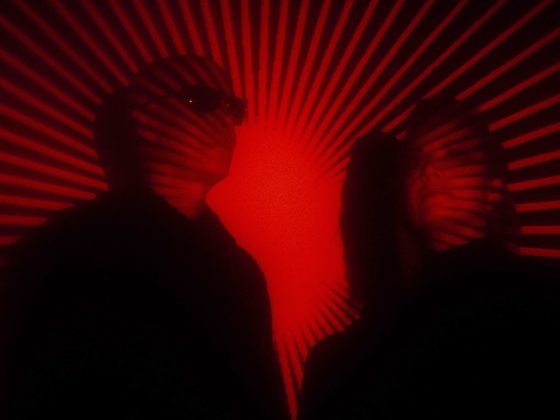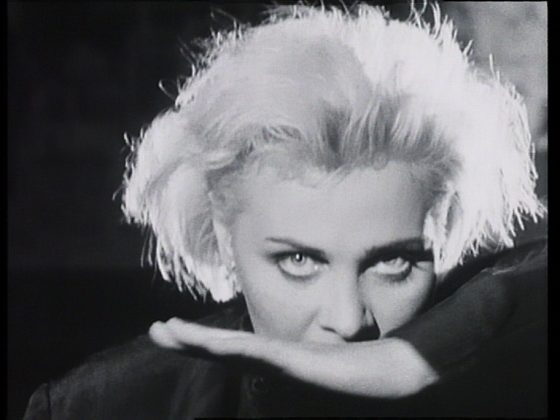Look to the starry skies, Achilles
Look to the silver seas
They do not live or die, Achilles
And neither do we
Achilles, sea-born and doom-bound, remains myth’s most mythic martyr; a warrior dipped in Death’s river, left vulnerable at the heel. His rage razed Troy, his grief carved Hector’s fate, but one arrow, loosed by Paris, felled him through fate’s forgotten seam. Neil Hannon, ever the arch-architect of irony, resurrects the legend in Achilles, a sun-scorched baroque ballad from Rainy Sunday Afternoon (out 19 September), The Divine Comedy’s first studio dispatch since 2019’s Office Politics. Marrying myth to Morricone and lounge to lament, Hannon transforms the Iliad into a tragicomedy with strings, chimes, and the slow gallop of mortality.
Neil Hannon takes the whole weight of arrangement, authorship, and assembly upon his own shoulders; stooped, perhaps, but still strong with a songwriter’s sinew. The result is nothing short of a reckoning: with age, with ache, with all the awful absurdities we dress in lace and laughter. The sound slips between styles like fingers through water: part folk madrigal, part ghost-ridden Western, part parlour pop, where Lee Hazlewood loiters with Scott Walker in the wings. Chimes ring like chapel bells in a desert; strings sweep and sigh like a breeze over barrows.
Achilles was inspired by Patrick Shaw-Stewart’s 1915 poem, Achilles in the Trench. “I read a newspaper article about it around the time of the various WW1 centenaries, and was very struck by it,” says Hannon. “The growing dread of the young classics scholar as he waits to board a troop ship for Gallipoli. ‘Shells and hells for me…I instantly felt tremendously grateful to have grown up in the postwar oasis of calm. To have made it to my forty-third birthday, outliving Shaw-Stewart by some fifteen years. I trust he wouldn’t mind that I pilfered a few of his lines. I hope it draws attention to his writing, his sacrifice, and the sacrifice of his contemporaries. Especially in these fraught times.”
Achilles is as blunt as a bayonet, bruised like old fruit, stitching the threads of antiquity and aftermath. Our doomed warrior looms, still sulking in the tent, his rage now echoed in modern mud and middle-aged malaise. From the spears at Troy to the steel rain of the Somme, to the soft existential sigh of turning fifty-three, death stays the faithful companion: distant, patient, undiscussed. A poem scrawled in a soldier’s pocket becomes a bridge between epochs, between epics, between man and myth. Hannon conjures – with clarity and candour – the quiet catastrophe of being human, and the strange, sad song it sings as we march, ever forward, into nothing.
“I have, though, like everyone, a darker, more melancholy side,” Hannon confesses. “And for one reason or another it has been much in evidence of late. I needed to use this album as an outlet for those feelings. To work through some stuff. Mortality; memories; relationships; political and social upheaval. Everyone should get to make an orchestral pop album once in a while. It should be available on the NHS.”
The brilliant video for Achilles, directed by longtime collaborator Raphaël Neal, unfolds as a visual procession of wartime figureheads: spectral, stoic, and unsettling. They each appear like Banquo’s ghost, summoned one by one, as we reflect on the violence they authored; the legacy of brutality left in their wake.
“The Achilles music video is probably my favourite work I’ve ever done for The Divine Comedy,” says Neal. “In the past, our videos often had a narrative, but this time, there would be no story, Neil visualising instead a tableaux-based studio video. Some scenes, like the one where the WW1 soldier imagines himself as Achilles, illustrate the song and the original poem by Patrick Shaw-Stewart. Others take us somewhere else. Yet they all say something about the themes of the song: getting older, reflecting on death and, at the heart of this existential struggle, bravery.”
Watch the video for “Achilles” below:
Catch The Divine Comedy on tour throughout the UK this October. Go here for more information.
- Mon 6th Liverpool, Philharmonic Hall
- Tue 7th Nottingham, Royal Concert Hall
- Wed 8th Bath, Forum
- Fri 10th Gateshead, The Glasshouse
- Sat 11th London, Barbican
- Sun 12th London, Barbican
- Mon 13th Brighton, Dome
- Wed 15th Cambridge, Corn Exchange
- Thu 16th Sheffield, City Hall
- Fri 17th Wolverhampton, Uni The Civic Hall
- Sat 18th Swansea, Arena
- Mon 20th Glasgow, Royal Concert Hall
- Tue 21st York, Barbican
- Thu 23rd Oxford, New Theatre
- Fri 24th Manchester, Bridgewater Hall
- Sat 25th Bristol, Beacon
Follow The Divine Comedy:
















 Or via:
Or via: